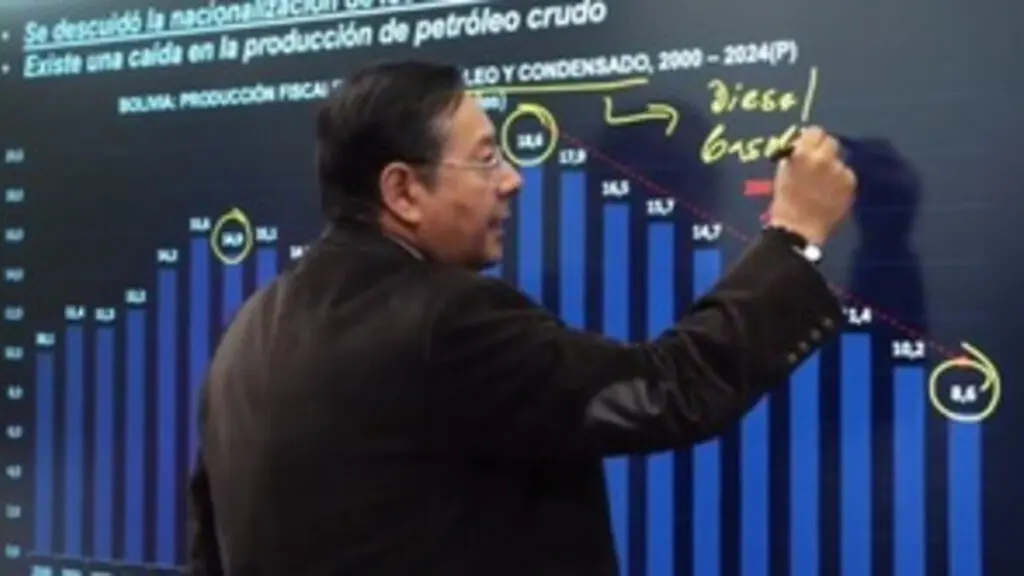In a detailed explanation, the President of Bolivia, Luis Arce, outlined the measures that his Government is taking to structurally solve the problems of lack of dollars and fuel supply.
In a live TV address, he urged the population to unite around these efforts, including agreements with the Bolivian business community to accelerate exports.
“We have lived through difficult times and faced great challenges that we have overcome throughout our history, and we will overcome this one together. And to do so, we need the support of all Bolivians,” he said at the end of a presentation in which he detailed the origins of the economic problems.
In his TV broadcast, during which he stood before charts to better explain the country’s economic situation, he mentioned various problems related to the shortage of fuel and money, including the absence of hydrocarbon exploration, the historic private trade deficit, the increase in freight costs and global inflation, the restriction of external credits in Congress and the climatic effects.
According to official statistics, the absence of hydrocarbon exploration resulted in a greater import of diesel and gasoline, exceeding 2.8 billion dollars. On the other hand, private imports have a negative balance of minus 2.349 billion dollars, which means that the public sector cannot cover the problems related to hydrocarbons, as it had done in the past.
The increase in external debt service was combined with the legislative blockage, resulting in the State receiving less income from credits than it pays in principal and interest. For example, as of August 2024, it received disbursements of 332 million dollars and paid 1,047 million dollars in principal and interest, resulting in a negative balance.
In addition, external factors such as the increase in transportation costs and the inflation rate contribute to the lack of dollars.
Arce explained that his Government is dealing with this complicated situation on several fronts, including its hydrocarbon exploration policy that prioritizes exploration, which has borne fruit with the discovery of the Mayaya X1 well in the north of the department of La Paz, as well as with biofuels with biodiesel and HVO plants.
“Let’s stop importing so that we are not using a dollar that we can save because we can generate and produce those products in our country. Our policy is consistent, everything we are doing has a horizon and clarity for a long time now,” he explained.
According to the president’s estimates, the current measures will allow replacing 90% of hydrocarbon imports. In addition, work is being done with the private sector on projects to overcome its trade deficit through measures such as streamlining exports through a single window.
Among the measures aimed at overcoming the current situation are the implementation of incentives and de-bureaucratization for the import of fuel by the private sector, strengthening the fight against diesel smuggling, incentives for exports to free up more foreign currency and the lifting of restrictions on the use of cryptocurrencies, as well as industrialization instead of imports.


